|
(c)
Copyright Bartók Archives of the Hungarian Academy of Sciences
Institute for Musicology, 2004-2005
Public Life
|
| |
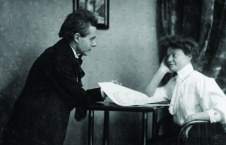
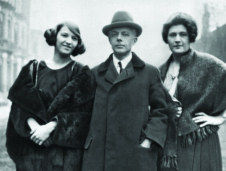
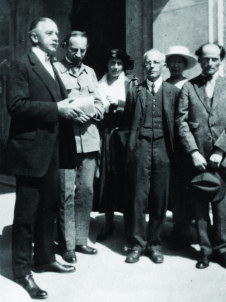
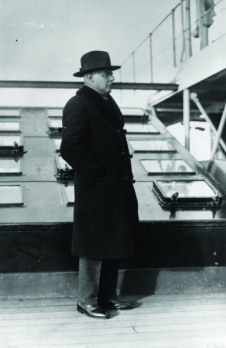
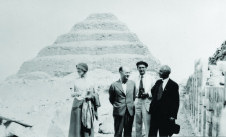
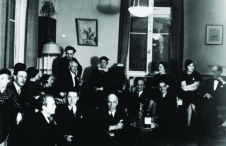
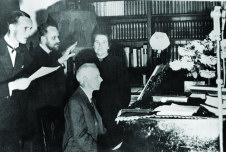
|
|
I was born on March
25, 1881, in a small place called
Nagyszetmiklós, which now, together with the
whole county of Torontal, belongs to Rumania. My
mother gave me my first piano lessons when I was
six years old. My father, who was the head of an
agricultural school, was gifted musically and
active in many directions. ... I was eight years
old when I lost him. After his death my mother
had to work as a schoolmistress and struggle
hard for our daily bread. ... I began writing
piano music when I was nine years old and made
my first public appearance as a “composer” and
pianist at Nagyszöllős in 1891. ...
|
|
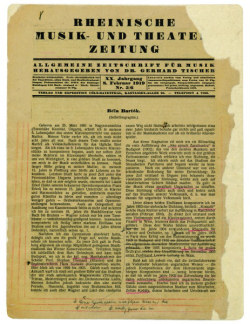
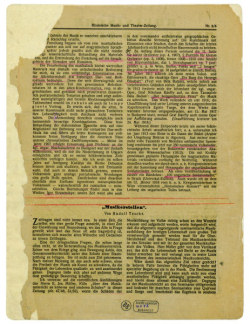 |
|
In my studies of folk music I discovered that
what we had known as Hungarian folk songs till
then were more or less trivial songs by popular
composers and did not contain much that was
valuable. I felt an urge to go deeper into this
question and set out in 1905 to collect and
study Hungarian peasant music unknown until
then. It was my great good luck to find a
helpmate for this work in Zoltán Kodály, who,
owing to his deep insight and sound judgment in
all spheres of music, could give me many a hint
and much advice that proved of immense value. I
started these investigations on entirely musical
grounds and pursued them in areas which
linguistically were purely Hungarian. Later on I
became fascinated by the scientific implications
of my musical material and extended my work over
territories which were linguistically Slovakian
and Rumanian.
The outcome of these studies was of decisive
influence upon my work, because it freed me from
the tyrannical rule of the major and minor keys.
The greater part of the collected treasure, and
the more valuable part, was in old
ecclesiastical or old Greek modes, or based on
more primitive (pentatonic) scales, and the
melodies were full of most free and varied
rhythmic phrases and changes of tempi, played
both rubato and giusto. It became
clear to me that the old modes, which had been
forgotten in our music, had lost nothing of
their vigour. Their new employment made new
rhythmic combinations possible. This new way of
using the diatonic scale brought freedom from
the rigid use of the major and minor keys, and
eventually led to a new conception of the
chromatic scale, every tone of which came to be
considered of equal value and could be used
freely and independently.
Bartók, “Autobiography” (1921),
in Béla Bartók Essays, ed. Benjamin Suchoff
(London, 1976), 409–410
|
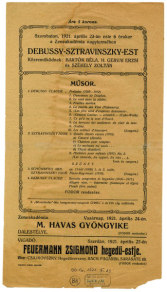 |
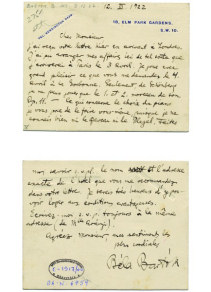 |
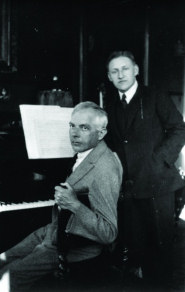 |
|

I also want to write a few lines about the
developments in Paris and London. In the “Temps”
review, not only do they not “scold” me, but
they write about me in a most kindly manner.
They begin with this “Schönberg’s and Bartók’s
talents are now irrefutable facts.” When
compared with the others, the things they write
about Dukas’s piece and mine are the most
favourable. On the other hand, the importance of
the matter lies in how they see it: they also
included me in the list of the ten
representative contemporary composers. ...
However, the
London article (in the “Sackbut”) is absolutely
sensational, in its appearance too: 8 dense
pages of small print; not to mention its
content: e.g. it says that the 1st Suite is a
youthful work, in the best sense of the word, as
there is such a degree of excellence apparent in
it, as is only usually achieved by composers
when the youthful freshness of their conceptions
has already faded. It states that the 1st
quartet is the best quartet since Beethoven ...
It is also very interesting that the article
emphasizes my being a “melodist” par excellence;
that I belong among the few new composers who
are capable of creating large-scale grandiose
pieces (N.B. although he does not yet know my
most monumental pieces, the 3 stage works) and
finally, that my pieces are influential in the
development of music. No Hungarian artist, not
only no musician but no sculptor, painter or
writer has ever been written of like that
abroad. ...
I do not think Márta has mentioned that I have
received a letter form Gatti, Italy’s most
influential music critic of our time, who says
he wants to promote my works in Italian
periodicals and so wants those pieces published
in Pest, which he does not know (naturally, he
already knows the ones that were published in
Vienna; he has already written short reviews
about some of them). Zoltán’s extensive article
about me will be published in the March edition
of “Revue Musicale,” I do not know what he wrote
yet, but his will doubtless be the best, simply
because he has been the most involved in all
that has influenced my development.
Bartók to his mother, January 8,
1921, in Bartók Béla Családi levelei (Family
letters), ed. Béla Bartók, Jr. and
Adrienne Gombocz (Budapest, 1981), 310–11
 |
|
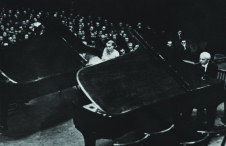 |
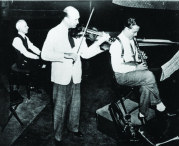
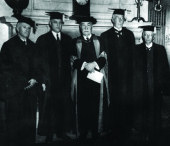
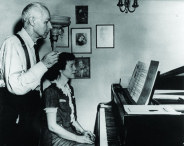 |
|
|
| |

|
|